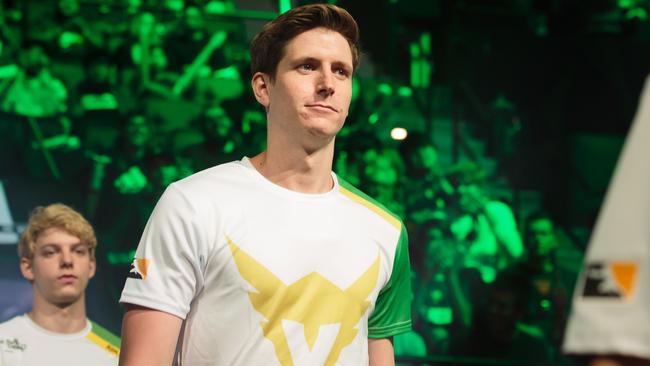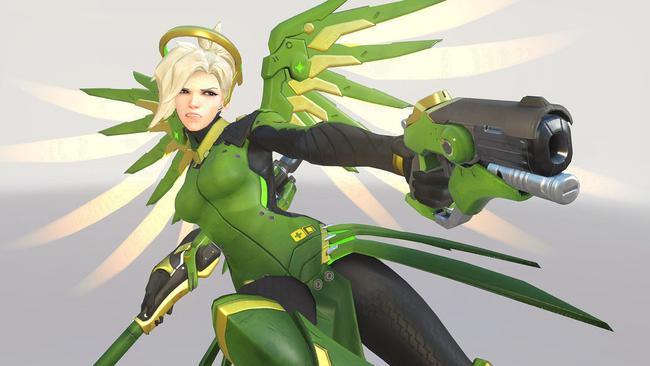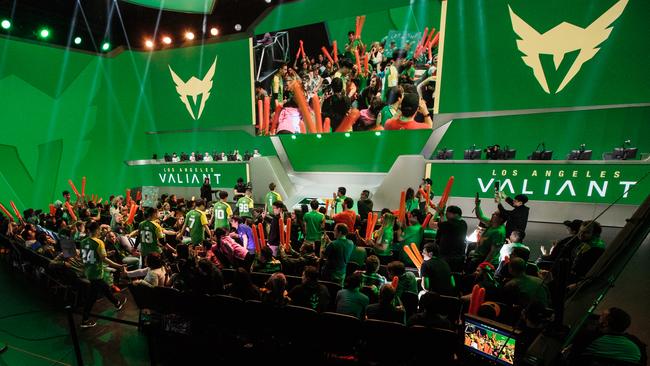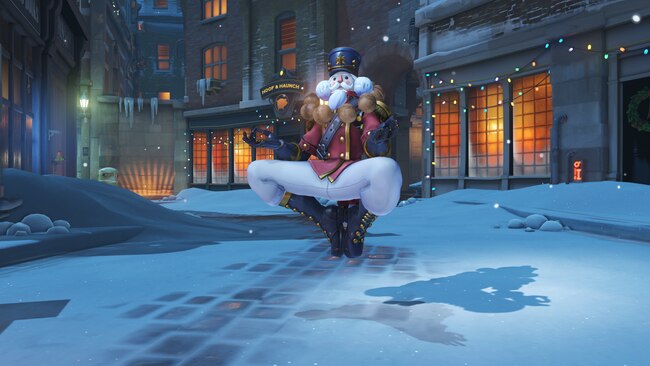Overwatch League: South Australian player Scott ‘Custa’ Kennedy from LA Valiant on becoming an eSports pro
A SOLE South Australian player is making a big name for himself in one of the world’s biggest eSports Leagues.
SA News
Don't miss out on the headlines from SA News. Followed categories will be added to My News.
- eSports hit centre stage with big prize pools and well-heeled backers
- You can watch games from the Overwatch League here
- More updates from Custa on his Twitter feed
A SOLE South Australian player is making a big name for himself in one of the world’s biggest eSports Leagues.
Scott “Custa” Kennedy grew up in Adelaide’s southern hills, moved to Canada in 2016 and has gone on to represent two US teams in the Overwatch League: Dallas Fuel and Los Angeles Valiant.
Appropriately, he’s ended up in green and gold colours after all.

Custa rates the great skill of Australian players but notes that we’re short on progression opportunities.
“There is definitely talent in Australia, but in the past it’s been hard to prove yourself when you’re so disconnected from the rest of eSports,” he said.
It’s not completely foreign to the 24-year-old though: assistant coach Jordan “Gunba” Graham hails from Western Australia and caster/commentator Mitch “Uber” Leslie is also from Adelaide.
I introduced Tim-Tams to the team and they confirmed that Australia is the best country in the world
— Scott Kennedy (@Custa) April 27, 2018
The teams are otherwise largely Korean, American and European, but the game’s worldwide audience comprises many Australians.
“It’s great to have so many fans from back home, but I’m hoping that more Australian players make it into the League in the future,” Custa adds.
Like many in his profession, Custa started out like most of the fans and spectators back home are now.
“I had never really heard about eSports until StarCraft II came out (in 2010). This is when I got my first taste for it as a spectator and really loved it. On the release of Overwatch (in 2016), I moved to Canada to attempt to play in North America because possibilities in Australia are a lot harder to come by. Fortunately, I got my name out there in the scene and was able to join professional teams after having multiple good performances in small tournaments.”
Australia did host a major stage of last year’s Overwatch World Cup in Sydney, an event that was successful for both Australia’s team and the legions of fans in attendance.
Australia made it to the quarter-finals before losing to Canada, which ultimately took second place to winners South Korea.
Many of the World Cup competitors now play in the League.
“It would be great to see an Overwatch League team that is based out of Australia in the future,” Custa said.
“We currently have Overwatch Contenders based in Australia and New Zealand. We are seeing profiles for both players and teams rising locally, but only time will tell.”
The Overwatch League comprises 12 teams, who field players in 6v6 battles to capture or control points — or move payloads — across maps set around the world.
Players can pick and change between a steadily growing pool of heroes — currently at 28 — grouped into classes of damage, tank and support for the purposes of the League.
While the heavily armoured tanks might be the frontline of the team, and the damage players dominate the screen time, it’s often the supports — providing healing and utility — that are the backbone, keeping everyone in the game.
Since his move to Valiant, Custa has shone mostly as flying combat medic Mercy and rollerblading DJ Lucio.
Among many other recent highlights, his support proved crucial to Valiant’s win against compatriots Los Angeles Gladiators in week 3 of stage 3.
Teammate Brady “Agilities” Girardi’s Pharah took the spotlight for his aerial control of the tie-breaker Oasis map.
But it was the pairing with Custa’s Mercy — dubbed “Pharmercy” for their ability to fly together — that kept Valiant in the fight as it extended into overtime.
The Adelaidean has previously played most other heroes from the support pool, notably the robotic monk Zenyatta and dark geneticist Moira.

The roster’s most recent support addition, the mace-and-shield-wielding Brigitte, should be playable in the League’s fourth stage — major changes such as the introduction of new characters are made between stages to avoid disruption.
Balance adjustments can also frequently alter the players’ perception of their characters — sometimes even minor changes can be the catalyst for a major team shake-up.
“They (Blizzard) do a great job of adding diversity and different heroes that accomplish different goals,” Custa said.
“I think they’re doing a good job of adding new heroes and balancing established ones.”
On a serious note I'm actually pretty disappointed about the Lucio changes. Seems like they're all designed to make the hero easier and lower the skill ceiling
— Scott Kennedy (@Custa) April 20, 2018
That isn’t to say that every change is favoured by players of that character, but the buffs, nerfs and reworks mean that no two stages will have exactly the same hero mechanics.
Custa, hailed for his shotcalling across either team, said their decision-making skills are what lets them pull off the complicated manoeuvres.
“The level of co-ordination that can be executed as a team, especially at the top level, is what sets the best teams above the others,” he said.
“During the heat of a fight, mostly it is just players communicating information to each other so that the best decisions can be made.
“Generally, there is a group decision made within fights that allows the team to work together as a group instead of all just playing individually.”
It’s only after finishing a round that the composure is allowed to drop.
“There’s no banter during fights, but before and after maps, there’s a little bit here and there!”
The camaraderie between the players, especially in tougher times, is one of the best moments of the competition, Custa said.
“My best moment on Fuel, I would say it was after we finished the first stage with two wins and the entire team went out for dinner as a group. It was such a lighthearted dinner and everyone was in great spirits, it just really felt like we had finally succeeded after such a tough start to the season.”
Custa recently wrote that he’d struggled to keep his morale up with Dallas bombing early in stage 1, but still loves the team and the foothold they gave him into the top level of gaming. Fuel has since undergone a significant roster change — and Valiant’s impressive winning streak has assured Custa he’s in the right place.
“LA Valiant has been performing incredibly well so far, so it’s been a great transition. I’m looking forward to seeing how far this roster can really go and if we can win Overwatch League against the best when playoffs roll around.”
You can see current standings at this link.
The playoffs are scheduled after the end of four stages of five weeks each.
After that, it’s on to grand finals and then an all-star weekend.
That means Custa will be based in the US for the foreseeable future, where career progression is abundant but meat pies are scarce.
“The best thing is there are so many opportunities here, especially within eSports. The worst thing is that everything is so expensive, especially food,” Custa said.
“(There’s) nothing even close to what you would find at any local bakery. It’s one of the things that I miss the most, and the first thing I do whenever I travel back home.

With such a hectic schedule of a fast-paced game, Custa said it’s hard to find time to wind down.
“One of the best things is just disconnecting from the internet. It’s hard to relax when you still have the ability to reconnect through your phone. So, if I can ever find time from that, it’s what I focus on doing.”
To the audience the players are always locked into their team colours (skins) but they can play in whatever they like when not competing.
What kind of Zenyatta would Custa run with in his time off?
“Probably the Nutcracker, it’s such a ridiculous looking skin that looks so out of place in comparison to everything else, and that’s why I love it.”



